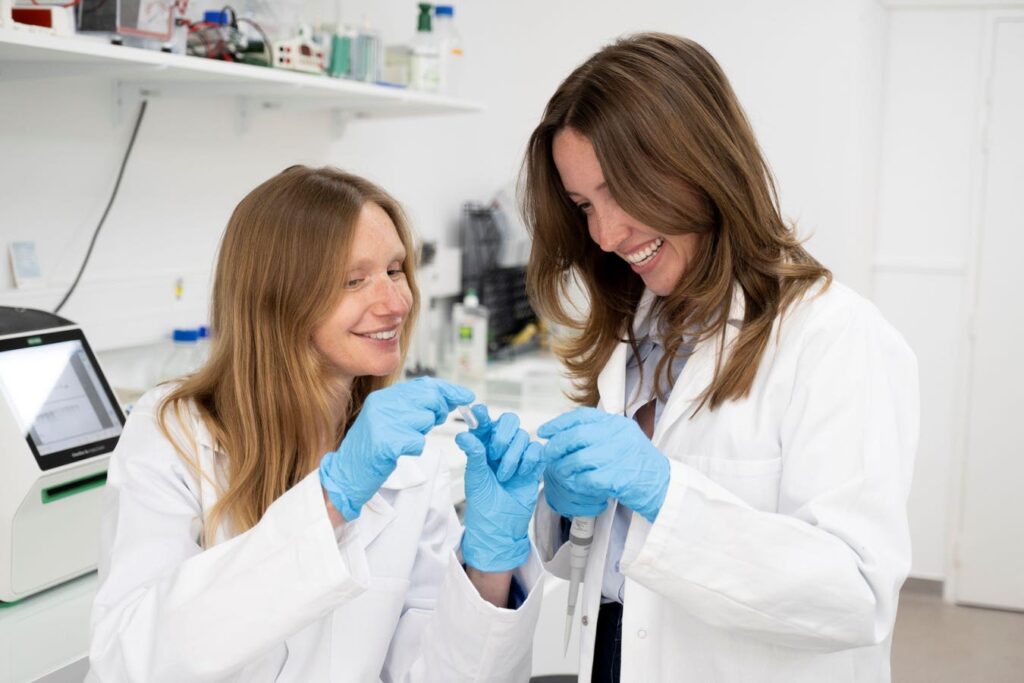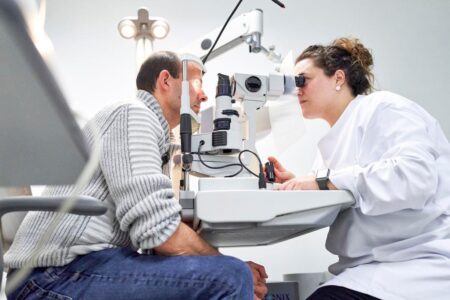Adverse reactions are a hugely challenging problem for drug developers and biotech companies. A drug that has the potential to help patients with very serious conditions – cancers and auto-immune diseases, for example – proves ineffective because the human immune system identifies it as a foreign body and attacks it. Sometimes this happens with all patients; in other cases, the response is individual. And sometimes, it happens as soon as someone starts taking a drug; or it might happen at a later stage, rendering a treatment ineffective after a period during which it worked well.
“As drugs have become more and more complex, this problem has become more pressing,” says Emilia McLaughlin, a British scientist who is the CEO and founder of Kyron.bio. “In oncology, for example, 50% to 60% of the drugs we’re developing to treat cancers are running into this problem.”
McLaughlin believes Kyron.bio, based in Paris, can help. Very often, she explains, the issue that causes adverse reactions is the way that drugs are manufactured. The sugar molecules – known as glycans – on the surface of the drug form inconsistent patterns that compromise their efficacy. Kyron.bio has therefore developed a new manufacturing process to ensure glycans are engineered with much greater precision. “We can sculpt the surface of the drug in such a way as to ensure the body won’t reject it,” she says.
The technology is attracting increasing attention. Kyron.bio has just won a significant new grant from the European Innovation Council, a European Union initiative to support innovative entrepreneurs in the bloc. The funding comes alongside a seed round led by venture capital firm HCVC, with participation from Verve Ventures, Entrepreneur First, Saras Capital and a number of angel investors. In total, the business is raising $5.5 million of additional funding to expand its team and to fund work on pre-clinical studies.
“Kyron.bio’s technology bridges a massive gap in therapeutics design,” says Alexis Houssou, founder and managing partner of HCVC. “Their breakthrough in glycan control could shift the paradigm for antibody therapies.”
There is a huge market to aim for. Fortune Business Insights says the global antibody therapeutics market was worth around $218 billion in 2022, but that this could rise to $479 billion by 2028 – growth of around 14% a year. Technologies that enable drug developers to bring more treatments to market could drive those figures even higher. “New manufacturers want to enter the highly competitive market, and strategic collaborations can be a useful tool to sustain their position,” analysts at Fortune Business Insights point out.
McLaughlin’s success in raising funding is also notable in the context of studies suggesting that female entrepreneurs in Europe often struggle to secure investment. For example, data from Female Foundry reveals that female-founded start-ups raised just $5.76 billion of venture capital funding last year, down 12% on the $6.56 billion they raised in 2023. While venture capital investment in all businesses dropped off in Europe last year, women-led businesses appear to have found it particularly hard to raise capital. Separate data suggests that while women account for 20-30% of new start-ups across Europe, these businesses are picking up less than 5% of venture capital funding.
McLaughlin says she was acutely aware of such challenges when setting out to raise for Kyron.bio. “Solo female founders often find it difficult to win the confidence of venture capital investors, which tend to be dominated by men,” she says. “I was particularly concerned about the reaction I might get from investors when I told them I was nine months’ pregnant.”
In the event, investors proved supportive – and McLaughlin says she would have felt uncomfortable, in any case, working with backers who saw her pregnancy as a cause for concern. That’s refreshing in the context of a venture capital sector that is often criticised for its conservatism – and gives Kyron.bio an opportunity to try to make a much needed difference in medicine.
Read the full article here











